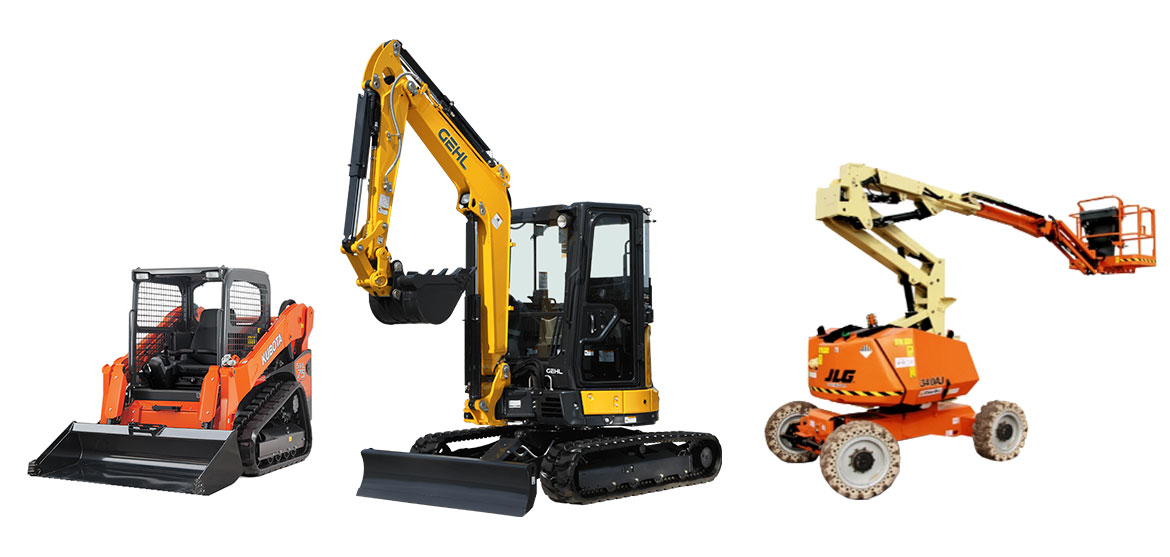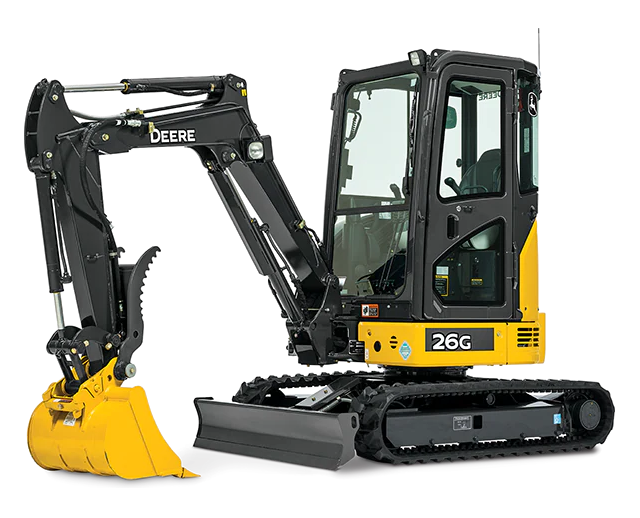Just How to Select the Right Construction Devices Rentals to Fulfill Your Details Demands
Choosing the suitable building equipment rentals is an important action that can dramatically influence project performance and success. It needs a methodical analysis of job needs, tools capacities, rental terms, and logistical factors to consider. Each aspect plays a critical role in guaranteeing that the selected tools straightens with specific jobs and site conditions. Nevertheless, the subtleties of these evaluations can commonly be ignored, bring about possible difficulties. Comprehending how to navigate this procedure effectively may be the secret to optimizing resources and minimizing prices-- yet lots of contractors locate themselves at a crossroads when making these important choices.
Analyze Your Task Requirements
Before selecting construction equipment leasings, it is crucial to thoroughly analyze your job demands to make sure that the right tools are made use of for optimum performance and security. Begin by defining the range of your task, including the tasks to be finished and the timeline for completion. This foundational understanding will certainly assist you in determining the specific tools required.
Next, think about the site problems, such as terrain, accessibility, and the room offered for maneuvering equipment. These elements straight influence the type and dimension of devices that can be effectively used. Additionally, review the anticipated work and production prices, as these metrics will establish the devices's capacity demands.
It is also critical to examine any regulative or safety requirements that might put on your job. Conformity with these policies can influence equipment selection and usage, affecting total job timelines and prices. Seek advice from with your project group and stakeholders to collect insights and agreement on tools needs. By very carefully taking into consideration these elements, you can make educated choices that not only improve functional efficiency yet additionally advertise a risk-free functioning environment.
Evaluate Equipment Abilities
How do you determine whether the equipment meets your job's demands? Start by analyzing the particular jobs required for your job and match these with the abilities of the devices available for rental fee. Take into consideration the equipment's ability, dimension, and power, as well as its functional attributes. If you require to raise hefty products, make sure the training capacity of the devices lines up with your needs.

Finally, take into consideration the most up to date technological improvements that may enhance performance. Functions such as general practitioner monitoring, gas efficiency, and operator-friendly controls can dramatically influence project implementation. By completely reviewing tools abilities versus your project specifications, you can make sure that you choose the appropriate machinery that not just satisfies however exceeds your operational demands, eventually adding to the success of your building and construction task.
Understand Rental Terms
Understanding rental terms is essential for making certain a smooth and successful equipment rental experience. Familiarizing on your own with the particular regards to a rental contract can prevent misunderstandings and prospective conflicts. Trick components to consider include the duration of the service, payment terms, and any kind of affiliated charges.
Generally, rental periods are defined in everyday, regular, or regular monthly terms, and comprehending these periods is important for budgeting. In addition, payment terms may differ between companies, including down payments, late repayment charges, and accepted repayment techniques.
It's likewise essential to clear up duties for maintenance and problems. Some rental arrangements might stipulate grain bin builders near me that the renter is liable for regular upkeep and any type of repair work that occur throughout the rental duration. Comprehending the problems concerning damage or theft is vital; ask about insurance policy alternatives and responsibility protection to safeguard your rate of interests.
Take Into Consideration Transport Logistics
Transport logistics play an important function in the successful service of construction devices. Correct planning and execution of transportation techniques can significantly affect the performance and performance of your building task. Prior to settling equipment rentals, evaluate the location of your project site and the access of transportation routes.
Consider the distance in between the rental supplier and your site, as longer ranges can result in boosted transport prices and delays - heavy equipment rental. Review the weight and measurements of the devices to ensure it can be safely delivered on offered streets and infrastructure

Be conscious of local policies concerning transport licenses and routes, as these can influence the logistics of moving heavy equipment (construction equipment rentals). By proactively addressing these factors to consider, you can guarantee and minimize prospective disturbances that the appropriate tools is supplied on time, cultivating a much more efficient construction process
Compare Rental Prices and Service Providers
When assessing construction tools services, it is important to compare costs and service providers to guarantee you secure the best value for your project. Beginning by collecting quotes from multiple rental business to develop a baseline for rates. Be mindful that expenses can vary considerably based on t excavator for sale elements such as tools kind, rental duration, and added services provided.
Next, take into consideration the credibility and dependability of each supplier. Try to find customer evaluations and endorsements to gauge their service top quality. A firm with a solid track document might justify a higher rental price due to superior tools upkeep and consumer assistance.
Furthermore, evaluate the regards to the rental agreements. Some companies might use flexible rental alternatives, such as day-to-day, weekly, or month-to-month prices, which can be useful depending on your task timeline. Take note of additional costs, such as shipment costs and insurance coverage expenses, which can impact the total rental price.
Final Thought

Picking the ideal building and construction tools rentals is a vital action that can dramatically affect project performance and success.Before picking building and construction equipment rentals, it is essential to completely assess your project requirements to guarantee that the right devices are made use of for ideal effectiveness and security.Recognizing rental terms is important for making certain a effective and smooth devices rental experience.When important source examining construction equipment rentals, it is essential to contrast costs and carriers to guarantee you protect the ideal value for your task.Selecting the suitable construction devices rentals demands an extensive examination of project requirements, devices capacities, rental terms, transportation logistics, and relative costs.